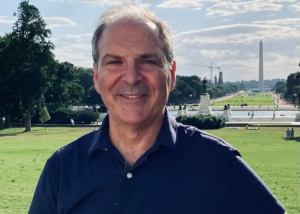Ohio Physician compassionately supports Medical Aid in Dying
Eric J. B. Shapiro Guest opinion
Akron Beacon Journal
June 5, 2025
 I appreciate Dr. Jason Kolb offering his perspective on Medical Aid in Dying (MAID) for the terminally ill after Delaware became the 12th U.S. jurisdiction to allow those who are dying to decide to die peacefully when they choose. However, he spends the bulk of his explanation describing situations that would not occur under any of the laws passed in our country.
I appreciate Dr. Jason Kolb offering his perspective on Medical Aid in Dying (MAID) for the terminally ill after Delaware became the 12th U.S. jurisdiction to allow those who are dying to decide to die peacefully when they choose. However, he spends the bulk of his explanation describing situations that would not occur under any of the laws passed in our country.
The American model for MAID requires people to have terminal illness and both the cognitive capacity to make legally informed decisions and the physical ability to give themselves the prescribed medications. Those with disabilities, most chronic illnesses, mental health conditions, and dementia generally do not qualify for these laws’ strict definitions of terminal illness and in many cases lack the capacity for informed consent.
Those who argue that hospice care suffices for end-of-life concerns should note that hospice usage is high among those who use the law. In 2024, 92% of Oregonians who chose MAID were enrolled in hospice. Someone at the end of their life should be getting the best care and have this option. It’s not an either/or scenario.
American laws specify that any health care provider may choose not to participate in MAID. The autonomy and values of physicians require and deserve that respect. In states that have passed these laws, Catholic and other religiously owned health systems have the right and choose to opt out.
Each of the states that have passed MAID laws has some unique features, but they closely follow the model of Oregon’s Death with Dignity Act. All include safeguards requiring that two providers evaluate the person making the request and agree they have six months or less to live. Furthermore, they must show that the person makes the request freely, with clear understanding, and the ability to take the medication, if they decide to do that.
These laws require that a primary provider evaluate the person making the request and
determine, after a waiting period and second request, that they qualify. Meanwhile, a second provider evaluates the person and verifies the medical timeline and the capacity for making an informed decision. Finally, a third written request must be witnessed by two people, one of whom may not benefit from the person’s death.
Dr. Kolb uses the example of the renowned psychologist Daniel Kahneman, who chose to end his life at age 90 with significant, but not clearly terminal, illnesses under a very different approach in Switzerland. Kolb then moved on to Canadian standards to say that we will go down that “slippery slope.”
Canada passed its federal MAID law in 2016, but while Oregon passed its Death With Dignity Act in 1997, no significant changes there or in other more recently joined U.S. states have occurred. He worries about a request in an emergency room situation, but under none of the U.S. laws would that qualify. All freedoms can be expanded to a point of potential abuse, and that is why civil societies use the law to divide the acceptable from the unacceptable.
One very important change in medicine over time has been the concept of shared decision-making between physicians and patients. For doctors who participate in MAID, the concept of beneficence requires understanding that while the physician plays a key role in diagnosis, explanation and offering treatment options, only the patient can determine how their values and goals intersect with their physical and spiritual state. Autonomy in decision-making at the end of one’s days can provide an irreplaceable source of strength and consolation, especially when a person sees few other areas under their control.
Other states have shown that laws can prevent the abuses conjectured by MAID’s opponents to create a straw man that distracts from the real option. As a point of interest, the peak percentage of annual deaths in Oregon which resulted from MAID was 0.8%.
This option will likely always be for the few, but for those few, it can offer a last chance to control their destiny. Ohioans deserve the freedom to make this decision, and many of us believe we need to work toward a law allowing MAID for the terminally ill.
Eric J. B. Shapiro has been a practicing physician in Northeast Ohio for 35 years. He lives in Shaker Heights.
Read more about brothers Eric and Jeremy Shapiro and their work on behalf of MAID here.
